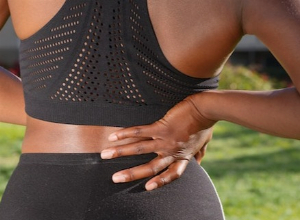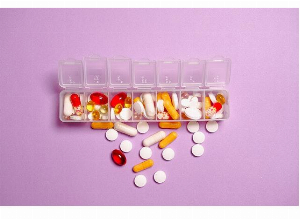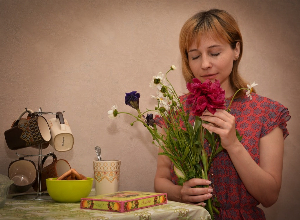Kidney stones and renal colic: All you need to know!
Published Apr 30, 2023 • By Polina Kochetkova
Kidney stones (renal calculi) can be an unexpected and painful occurrence in a person’s life. Renal colic appears when kidney stones block a part of the urinary tract. What are kidney stones and why do they form? What renal colic feels like and how to cope with it? Today we discuss the body’s urinary.
Keep reading to find out more!

How do kidney stones form and why?
Kidney stones happen to be one of the painful experiences some of us go through. According to the National Kidney Organization, about 19% of men and 9% of women will have kidney stones in their lifetime. The stones form in the kidneys from salts and calcium in our bodies. They can present themselves in different sizes and shapes, depending on each individual situation. Kidney stone size can vary from the size of a small sand grain to the size of a golf ball.
The condition can appear at any age. In children, kidney stones affect mostly teens, yet can appear in younger children and even infants. In most cases, kidney stones become an issue after 30, with people in their 40s and 50s as the most affected by kidney stone pains.
One of the main reasons for kidney stone formation is dehydration. Urine contains multiple waste products, including calcium, uric acid, and more. When drinking enough water, it can flush out the stones-forming particles. However, if the urine is dense, the waste products stay in the kidneys, slowly forming kidney stones.
There are multiple other possible causes of kidney stones including: obesity, kidney illnesses history in the family, weight loss surgery, and more. An unbalanced diet, consisting of ultra-processed foods, high in sodium, can negatively affect the kidneys’ health and result in kidney stones. Fructose is another factor to consider when preoccupied with kidney health. In the US, a study showed that an increased intake of fructose, mostly of table sugar and fructose corn syrups, can be possibly linked to an increased risk for kidney stones.
What is renal colic?
Kidney stones can stay in the body for years without causing any damage, yet eventually, they can move down the urinary tract. Kidney stones movement can cause a lot of pain since the stone can get stuck and influence the urine flow. The pain, which appears when a kidney stone blocks the urinary tract, is called renal colic. The urinary tract includes: kidneys, bladder, ureters and urethra. The main purpose of the urinary tract is to connect the kidneys with the bladder and ensure comfortable urination. While smaller kidney stones don’t usually cause severe pain, larger stones can often get stuck in the urinary tract, causing renal colic.
What does renal colic feel like?
If you suspect the presence of kidney stones and/or renal pain, here are some symptoms to pay attention to:
- Pain when urinating,
- Change of urine color (red, pink or brown),
- Gravel in urine – small particles of kidney stones,
- Odd-smelling urine,
- Urgent need to use the bathroom more frequently,
- High fever,
- Fatigue.
One of the main symptoms of renal colic is sharp pain in the back and lower abdomen. The pain usually comes in waves of 20 - 60 minutes. The severity of the pain is different for each individual case. Some patients describe the pain during renal colic as excruciating, stabbing and throbbing, yet for others, it can be more of a mild discomfort. Renal colic is often accompanied by nausea or vomiting. Due to the pain, some patients can pass out. During a renal colic episode, it is often impossible to find a comfortable position.
How to treat renal pain?
Dealing with renal colic can be exhausting, therefore it is important to have a caretaker by your side to help you manage the symptoms and ensure proper care. Secondly, calling an ambulance is necessary when renal colic begins, as without treatment, the urine build-up can cause infections, kidney damage, kidney failure, and even sepsis.
To ease the pain the doctor can prescribe:
- Nonsteroidal anti-inflammatory drugs such as paracetamol or ibuprofen,
- Opioid painkillers like morphine or codeine,
- Medications to lessen muscle spasms.
In order to illuminate renal colic, it is vital to deal with the underlying condition – kidney stones. Kidney stones can be removed in a variety of ways, depending of the size and position in the body. Firstly, the doctor would do multiple tests to detect kidney stones and choose the best treatment option for each patient.
Some of the tests to determine kidney stones include:
- Blood tests to check the state of the kidneys,
- Urine tests to check for pieces of kidney stones and infections,
- CT scan, as one of the most accurate methods to detect kidney stones, with 95% accuracy,
- Pregnant women can be offered an ultrasound test instead of a CT scan.
Fortunately, kidney stones and renal colic can be removed in many ways:
Extracorporeal shock wave lithotripsy (ESWL) is an approach to breaking up kidney stones. High-energy shock waves are used in the non-invasive ESWL technique to fracture kidney stones into tiny fragments. The smaller fragments can then be removed from the body by urination. ESWL usually takes 45 to 60 minutes to complete and is typically performed under sedation or anesthesia. After the procedure, the patient is advised to drink up to 3 liters of water to ease the process of stone removal from the urinary tract. Taking a warm bath can help soothe the pain and relax the muscles, while waiting for the stone to pass.
Kidney stones can also be taken out with ureteroscopy. A small scope is inserted into the ureter, the tube connecting the kidney to the bladder. The camera and the little basket on the scope can then gather up and remove the stones. Usually performed under anesthesia, ureteroscopy takes 30 to 60 minutes to complete.
The third way to remove kidney stones is through percutaneous nephrolithotomy (PCNL). PCNL is a surgical procedure that involves making a small incision in the back and using a scope to locate and remove kidney stones. PCNL is usually done under general anesthesia and takes around 2 to 4 hours to complete.
What are the ways to prevent kidney stones from forming?
In order to naturally prevent kidney stones from forming, it is crucial to limit processed foods intake, stay hydrated by drinking enough water, live an active lifestyle and eat plenty of fruits and vegetables.
Kidney illnesses and kidney stones can be genetic issues. Therefore, if your mother, father, grandparents, or any other family member has already had kidney stones, you can be more prone to developing the same condition. In an interview with the University of Utah, doctor Faerber says: “I often tell them (patients), "Listen, you can't run away from your genes, and you're sort of stuck with who you're with." And in that case, I will really push them to make sure that they keep their fluids up. I think the only other thing that is really important is to limit the amount of salt intake that you have, watch the potato chips and move that saltshaker away from the kitchen table.”
DASH diet can be often suggested to avoid kidney stones from forming. Fruits, vegetables, reduced salt, chicken, fish, legumes, whole grains, and limited amounts of red meat compose this diet. Eating a restricted diet like that is an effective way to start minimizing or restricting your likelihood of developing stones in the future, especially if you control your calories and aren't eating too much in accordance with your activity levels.
Apple cider vinegar may aid in the dissolution of calcium deposits, as it contains citric acid. However, more research is needed to be sure of apple cider’s effectiveness against kidney stone formation.
Give it a "Like" and share your thoughts and questions with the community in the comments below!
Take care!
Sources:
Kidney stones, Nhs.uk
Kidney Stones, NationalKidneyAssosiation.com
Renal Colic, Clevelandclinic.org
Fructose increases risk for kidney stones: potential role in metabolic syndrome and heat stress, Nih.org
Acute Renal Colic,Nih.gov
Patient education: Kidney stones in adults (Beyond the Basics), Uptodate.com
How to reduce your risk of developing another kidney stone, Healthcare.utah.edu
Seven Natural Ways to Prevent Kidney Stones, Denverurology.com
Comments
You will also like

What are the dangers associated with the over-the-counter sale of certain medicines?
Dec 19, 2020 • 6 comments

 Facebook
Facebook Twitter
Twitter

